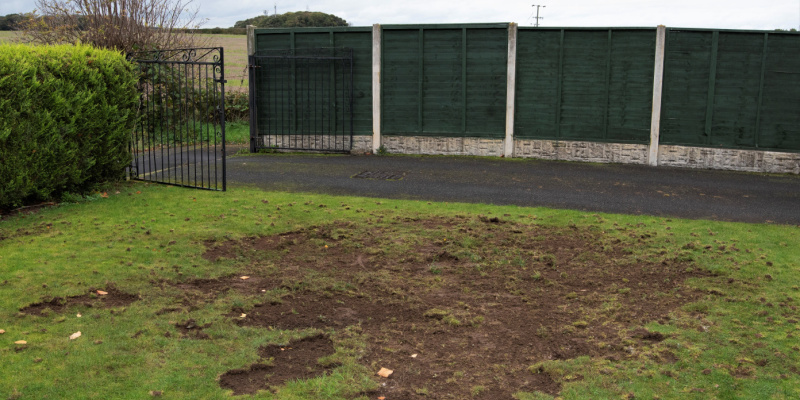Grubs, the larvae of various types of beetles, can be one of the most damaging pests to your lawn. These small, white creatures feed on the roots of grass, leading to brown, dying patches in your yard. Understanding when and how to prevent grubs is key to maintaining a healthy lawn. This guide will help homeowners in Ohio identify the optimal timing for grub prevention treatments and how to effectively protect their lawns.
Understanding the Grub Life Cycle
To effectively prevent grub damage, it’s important to understand their life cycle:
- Egg Laying:
Beetles typically lay eggs in the soil during mid- to late-summer.
- Larvae Development:
The eggs hatch into larvae, which are the actual ‘grubs’ that feed on grass roots.
- Winter Dormancy:
Grubs burrow deeper into the soil to survive the winter.
- Spring Awakening:
As the soil warms up, grubs return to the surface and resume feeding before maturing into beetles.
Identifying Grub Damage
Before discussing prevention, it’s important to recognize the signs of grub damage:
- Brown, Patchy Grass:
Affected areas will often feel spongy underfoot.
- Increased Bird Activity:
Birds may feed on the grubs, causing additional damage to the lawn.
- Easy to Lift Grass:
Grass with damaged roots can often be lifted or rolled back like a carpet.
Optimal Timing for Grub Prevention Treatments
Late Spring to Early Summer
- Why: This is before or as the eggs are hatching, and the young grubs are most vulnerable.
- Benefit: Preventative treatments at this time can stop the grubs before they cause significant damage.
Late Summer to Early Fall
- Secondary Option: If you missed early treatments, some products can still be effective during this period.
- Note: These treatments might not be as effective as early preventive measures.
Choosing the Right Treatment
Several types of grub prevention treatments are available, and the best choice may depend on your specific situation:
- Chemical Insecticides:
Products containing chlorantraniliprole, imidacloprid, or thiamethoxam are commonly used for grub prevention.
- Organic Options:
Nematodes and milky spores are natural alternatives, though they may be less immediate in their impact.
Application Tips for Grub Preventatives
1. Follow Instructions:
It’s crucial to follow the product’s instructions for application rates and timing.
2. Even Distribution:
Ensure the treatment is evenly distributed across the lawn for effective coverage.
3. Watering-In:
Most products require watering-in to help the treatment reach the soil where the grubs live.
Signs You Need Professional Help
If you’re unsure whether your lawn has grubs or if you’ve noticed signs of damage, it might be time to call in professionals:
1. Persistent Problems:
If you have recurring grub issues each year, professional help can provide a more thorough solution.
2. Large Lawn Areas:
For extensive lawns, professional application ensures even coverage and effective treatment.
3. Expert Assessment:
Professionals can confirm the presence of grubs and recommend the best course of action.
Integrated Pest Management (IPM) for Grubs
In addition to direct treatments, Integrated Pest Management (IPM) involves a combination of methods to control pests with minimal environmental impact:
- Regular Monitoring:
Keep an eye on your lawn’s health and check for signs of grubs.
- Cultural Practices:
Maintain a healthy lawn through proper mowing, watering, and fertilization, which can make your lawn less attractive to beetles for laying eggs.
- Biological Controls:
Use of natural predators or biological agents to control grub populations.
Preventing grub damage is an essential aspect of maintaining a healthy lawn. Timing is critical, with late spring to early summer being the ideal period for preventive treatments. Whether you choose chemical or organic methods, proper application is key to their effectiveness. For those facing significant grub issues or who prefer professional assistance, lawn care services can provide the expertise and treatment needed to protect your lawn. By staying vigilant and taking timely action, you can keep your lawn free from the damaging effects of grubs.

